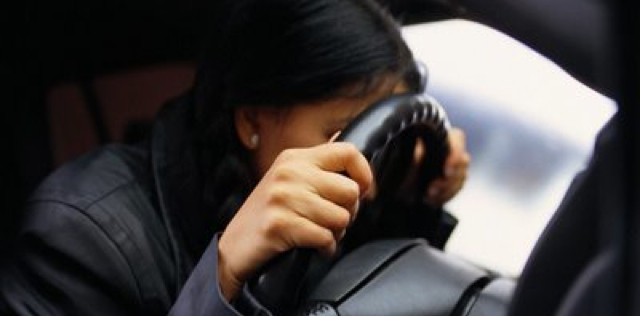Fifty hours of community service and a $500 fine. That’s what you get in Florida if you’re so irresponsible behind the wheel of a motor vehicle that you start to doze off — repeatedly — and keep driving until you finally nod off completely, veer into oncoming traffic, and kill someone.
Obviously I’m talking about the accident that stole away my friend Shaun Lumachi. And obviously I’m pretty pissed off about such a wrist-slap — based on the charges filed, the most serious sentence the judge could impose — for serious and conscious negligence that resulted in fatal consequences.
Once a person has been found guilty of violating the law, a penalty is imposed toward at least one of three ends:[i]
- To protect. Jails and prisons exist partly to segregate persons deemed a threat to the general public.
- To rehabilitate. Since the vast majority of crimes are not deemed deserving of death or life imprisonment, most offenders will be returned to society. Rehabilitation aims to return them as better society members.
- To deter/punish. The primary reason for the a priori existence of criminal penalties in our society is to dissuade people from committing crimes in the first place.
When viewed in this light, Weitzman’s sentence is a paragon of the how ludicrously ineffectual our judicial system can be. Because Weitzman’s sentence does not include any sort of suspension of his driver’s license, his penalty does nothing to protect his fellow motorists. Because it includes no sort of counseling or driver’s training, the penal system has washed its hands of any sort of rehabilitation for such a dangerously irresponsible person. And it seems highly unlikely that anyone hearing of the Weitzman case will be made to think twice about driving while having difficulty maintaining consciousness, knowing that the worst that could befall them is a working week’s worth of pay and time. Five hundred dollars does not even approach an amount that would defray the cost to the various Florida authorities of clearing away the wreckage or of transporting Shaun to the hospital in the vain attempt to save his life.
Manny Madruga, chief assistant state attorney of Monroe County, tells the Long Beach Post that Weitzman was charged with “failure to maintain a single lane resulting in a death” — as opposed to involuntary manslaughter or vehicular homicide — based on the recommendation of the Florida Highway Patrol, a recommendation with which Madruga’s office agreed. “They found it was only a noncriminal traffic infraction […] and we agreed with their assessment,” Madruga says.[ii]
The reason, Madruga explains, has to do with the burdens of proof pertinent to the laws as currently defined. To prove vehicular homicide, for example, the prosecution must prove the driver shows “reckless with indifference to human life.”
One might argue, of course, that you would be hard-pressed while behind the wheel to demonstrate much more indifference to human life than to keep driving your ton of motorized metal while you’re having trouble staying conscious. But that state of affairs, Madruga says, “does not rise [legally] to the level of culpable negligence. […] Maybe that’s going to have more weight if it was 3 in the morning, but this is the middle of the day.”
To be fair to Madruga, he was not defending the legal logic currently dictating the charges and sentencing in such a scenario. “It doesn’t seem like society’s ready to hold [a driver] accountable for the criminal aspect [if he’s] not under the influence of a controlled substance,” Madruga conjectured.
Had Weitzman been caught driving with a blood alcohol level above .08%, presuming it was a first offense, even had he not gotten in any sort of accident his minimum penalty would have been a $250 fine, 50 hours community service, a revocation of his driver’s license lasting at least 180 days, and 12 hours of DUI school. His maximum penalty would have upped the fine to $500 and shown him the inside of jail cell for six months (nine had his daughter been in the car), followed by one year of probation.
The terrible irony here is that Shaun Lumachi would be alive today had Weitzman been driving under the influence but been wide awake, because typically one would need to be well above .08% to cross over into oncoming traffic.
I am in no way suggesting there’s anything wrong with DUI laws. No one should operate a motor vehicle while impaired. But we ought not to give a damn whether that impairment comes in the form of alcohol, marijuana, perscription medication, cough syrup, using your cell phone, eating a Big Mac, or not being well rested enough to stay conscious. Because while Weitzman may have been stone sober, it’s not like the negligence he practiced could have made Shaun Lumachi any more dead.
On December 3, with his infant daughter in the backseat, Keith Weitzman knew he was having difficulty staying awake behind the wheel of his Ford F-150, but he kept driving until he fell asleep and took a life. The residents of Florida can only hope that Weitzman’s previously insufficient conscience will get the better of him on the other side of this tragedy, because that is apparently the only possible dissuasive force in play in a situation such as this. Our laws fail us.

